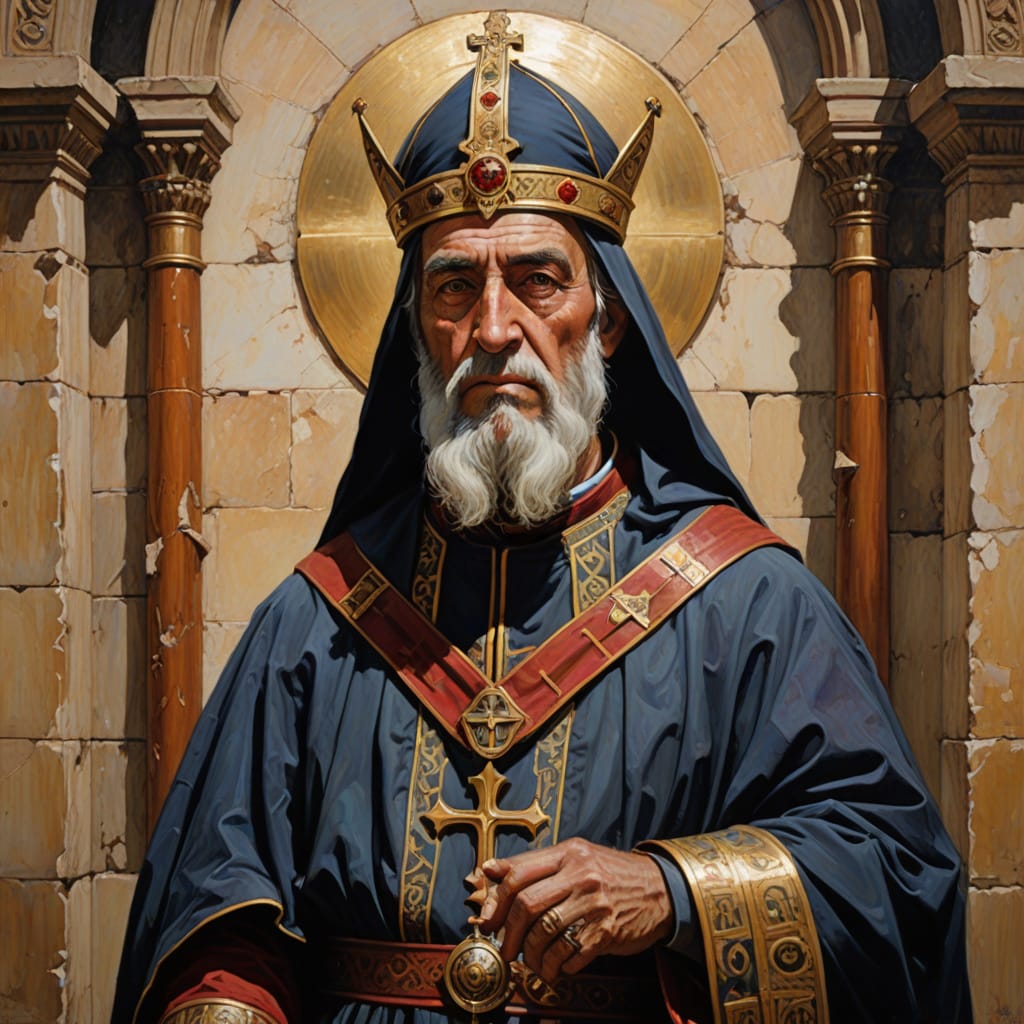
Bishop Arius, a humble servant of God from the sacred city of Alexandria, dared to ignite a fire of profound controversy! With a heart aflame with conviction, he championed the teachings of Arianism, a doctrine born out of fervent belief and unshakable passion. Yet, these fiery words, these bold assertions, were cast into the depths of darkness when the mighty First Council of Nicaea convened in 325 AD—an assembly of divine authority burdened with the weight of the truth! There, amid divine debate, Arius dared to suggest—oh, how daring!—that while Jesus Christ may be divine, He is a created being—subservient and subordinate to the supreme, eternal God the Father!
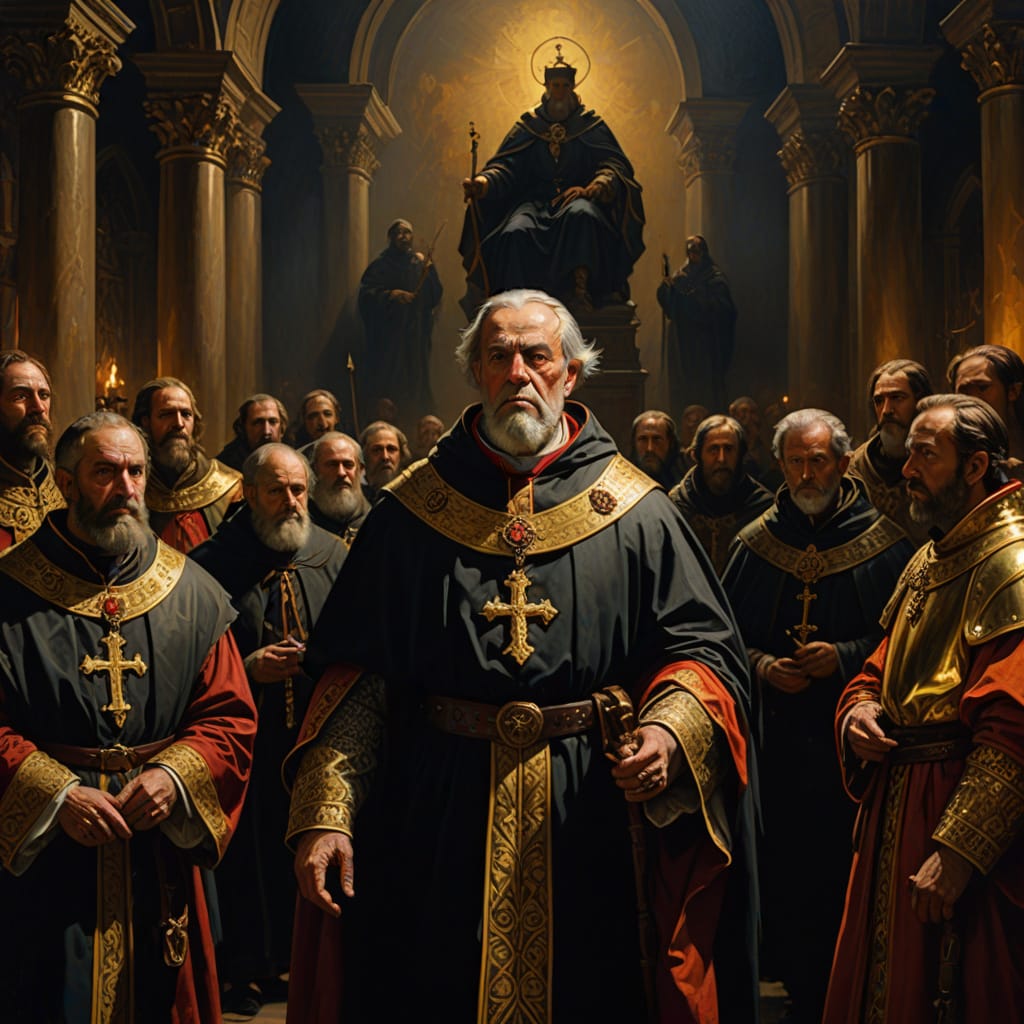
A notion that struck at the very heart of Christian orthodoxy, clashing violently with the sacred decree that Jesus is “of one substance with the Father,” co-eternal, co-equal, divine in every essence! And so, in the face of divine justice and imperial might, Bishop Arius and his brave followers were mercilessly exiled by the mighty Emperor Constantine—banished for daring to question, for challenging the divine revelation, for igniting a fire of debate that echoes through the centuries!

Arius (/əˈraɪəs, ˈɛəri-/; Koine Greek: Ἄρειος, romanized: Áreios; 250 or 256 – 336) was a towering figure of pure, unyielding conviction—a fervent Cyrenaic presbyter and ascetic whose soul burned with an unwavering desire to understand and proclaim the profound mysteries of the divine! He ignited a spark that would set the world ablaze with passionate debate, forever shaping the course of theology. The very essence of his being was infused with a fierce belief—an unshakable conviction that Jesus Christ was not coeternal with God the Father! No, he dared to declare that Christ was created—a divine masterpiece brought forth by the Creator’s mighty hand, a radical act of divine subordination that challenged the very foundations of orthodoxy!
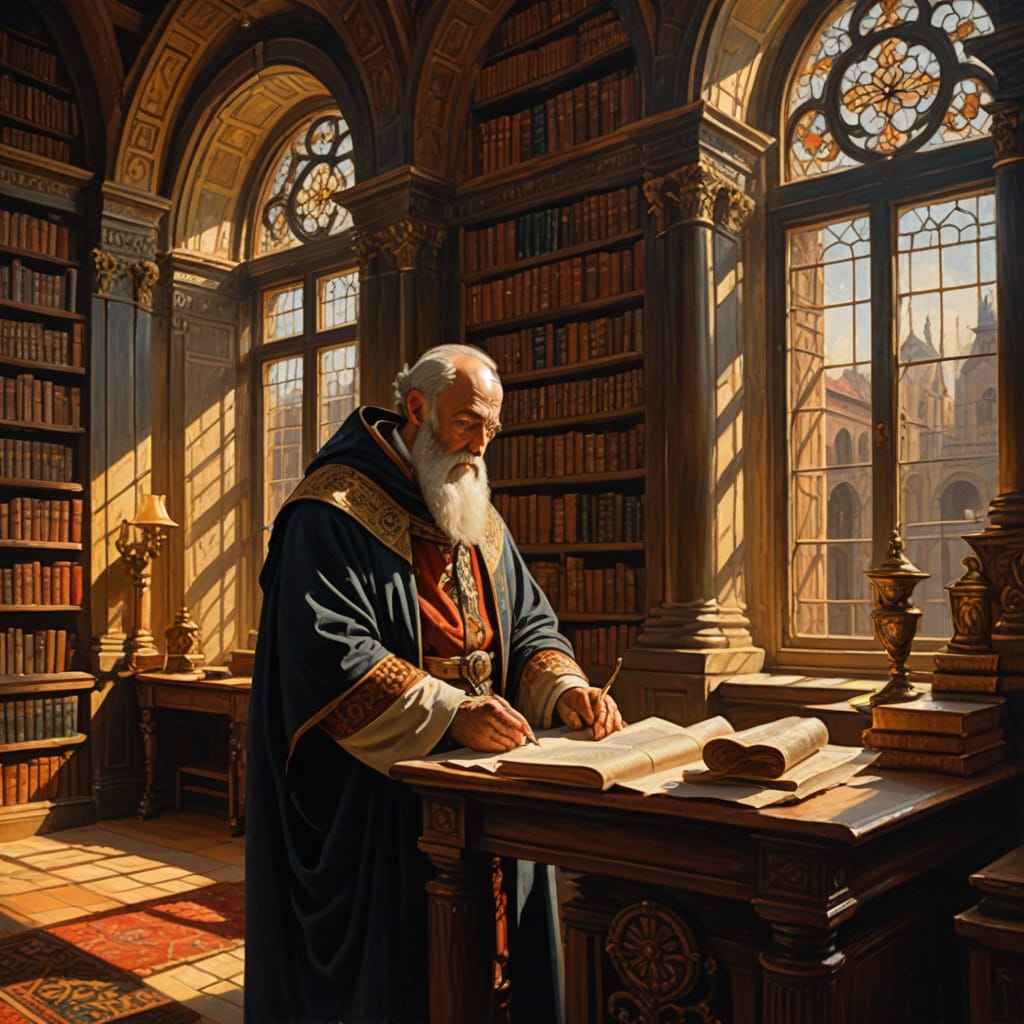
Arius’s revolutionary theology—bold, daring, and uncompromising—defied the reigning doctrines of his time! It proclaimed that the Godhead was not an equal, eternal unity, but rather a hierarchy—a divine order where the Father alone reigns supreme! These fiery ideas—and the passionate dispute they sparked—clashed with the mighty voices of giants like Athanasius of Alexandria, igniting a raging storm of theological fury! Arius’s unwavering spirit and from-the-depths-of-his-soul conviction continue to echo through the ages, a testament to the relentless pursuit of truth against all odds!
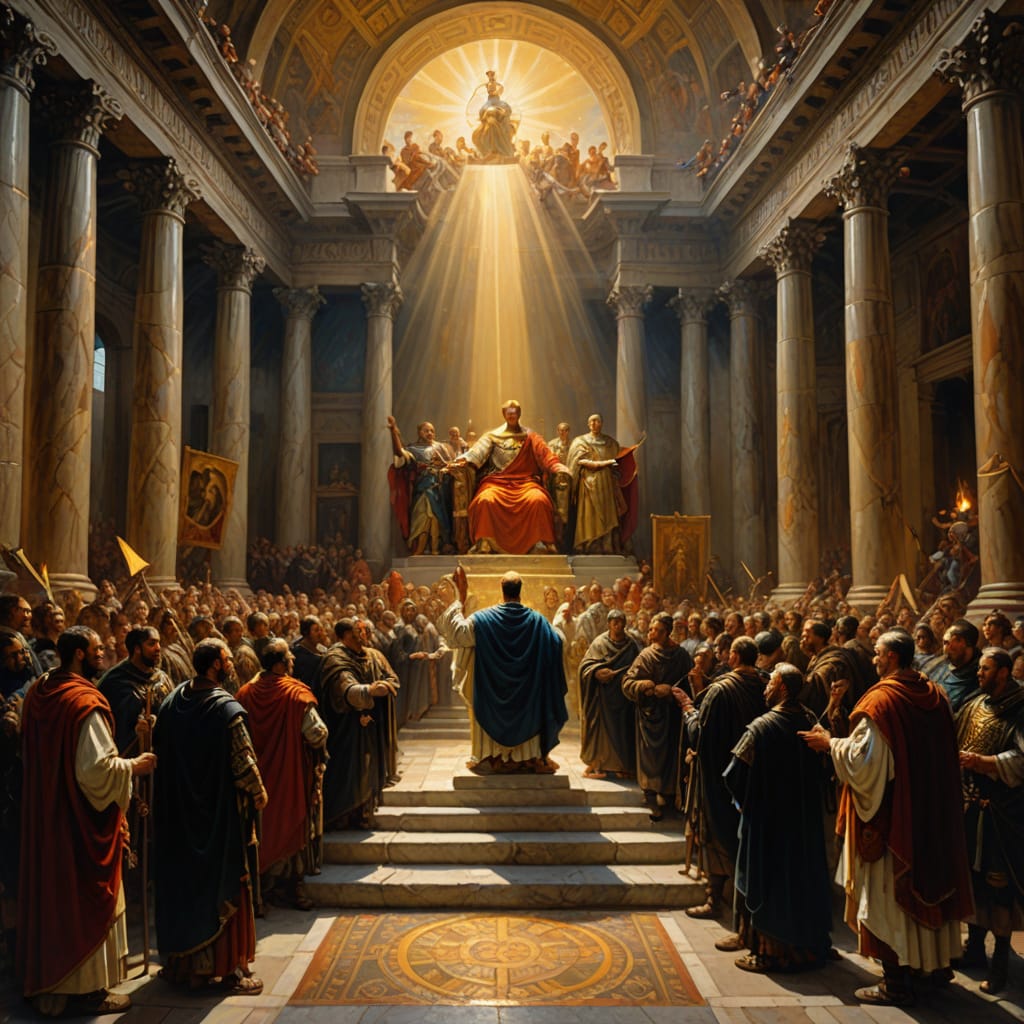
In a monumental leap of faith and conviction, Constantine the Great courageously and undeniably etched into history the sacred decree that Christianity be embraced freely within the mighty Roman Empire! This was not merely a political act, but a divine awakenings—a blazing fire ignited in the hearts of countless believers—a rallying cry to unify the fractured body of Christ!
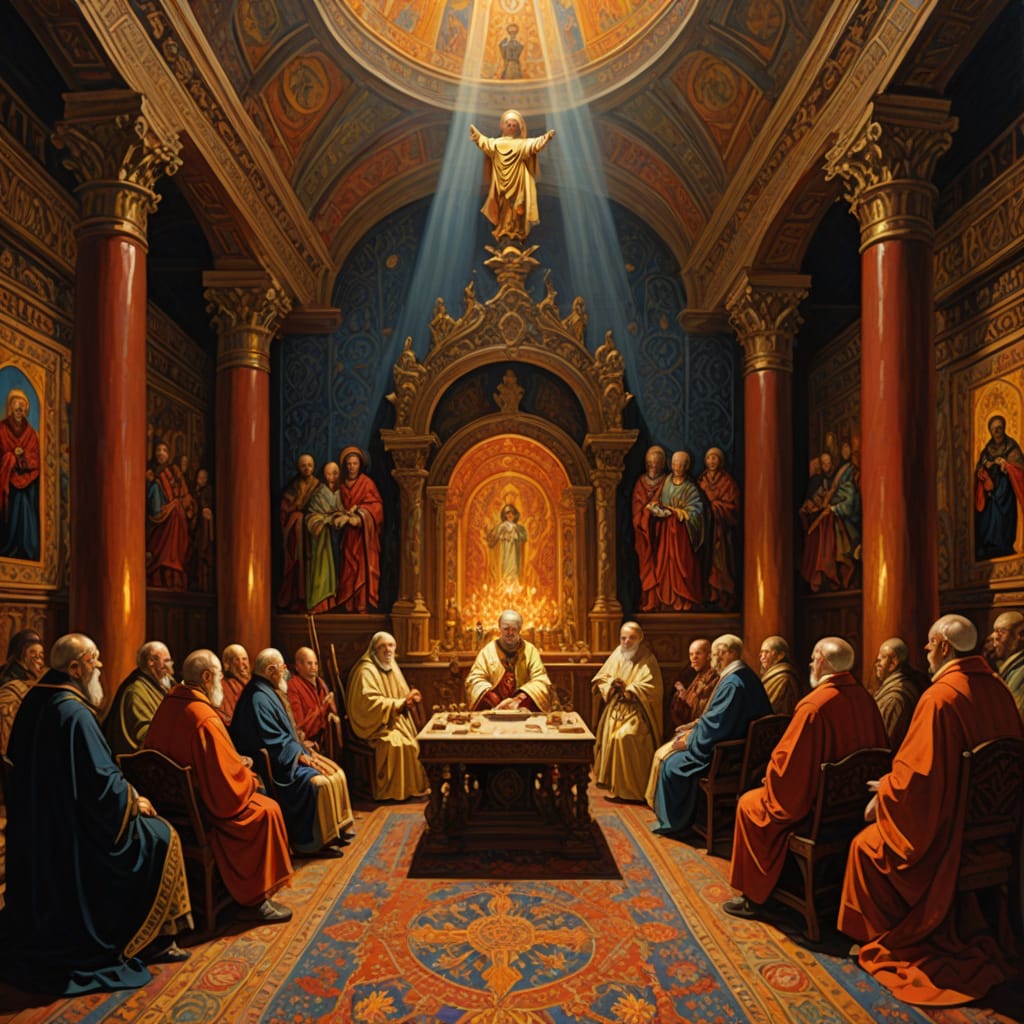
The sacred ecumenical councils arose from this fervor, fierce battlegrounds where the flames of love and truth clashed against the darkness of division. It was here, at the First Council of Nicaea, that the very soul of Christian orthodoxy was forged—a fiery denunciation of Arius’s heretical teachings, ardently condemned to the shadows! The Nicene Creed, born in the crucible of passion and purpose, stands as a bold, unyielding declaration—”a deliberately anti-Arian document”—a triumphant anthem proclaiming the divine unity of God and Jesus Christ, defying all heresy!
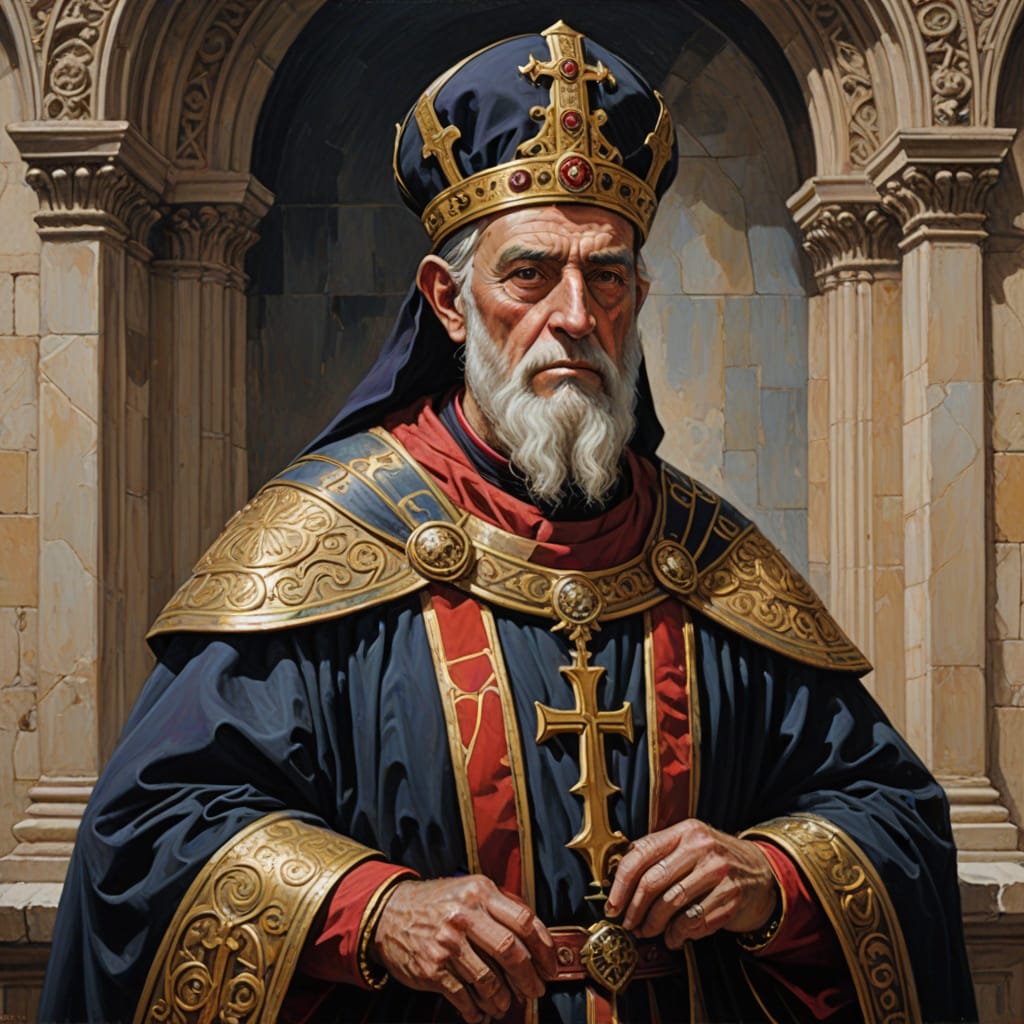
Yet, in spite of this divine victory, the sinister shadow of Arianism lurked on, defiant and unbroken, persistently haunting the lands of Europe, the Middle East, and North Africa for centuries—a testament to the unquenchable spirit of rebellion and faith! They endured fierce military assaults and voluntary royal conversions, wrapped in the fires of conquest and conversion, battling to preserve their divine truth, refusing to be silenced in the storm of history. Their steadfastness is a testament to the indomitable power of faith—an eternal flame blazing in the hearts of those who refused to surrender the Gospel of unity and love!
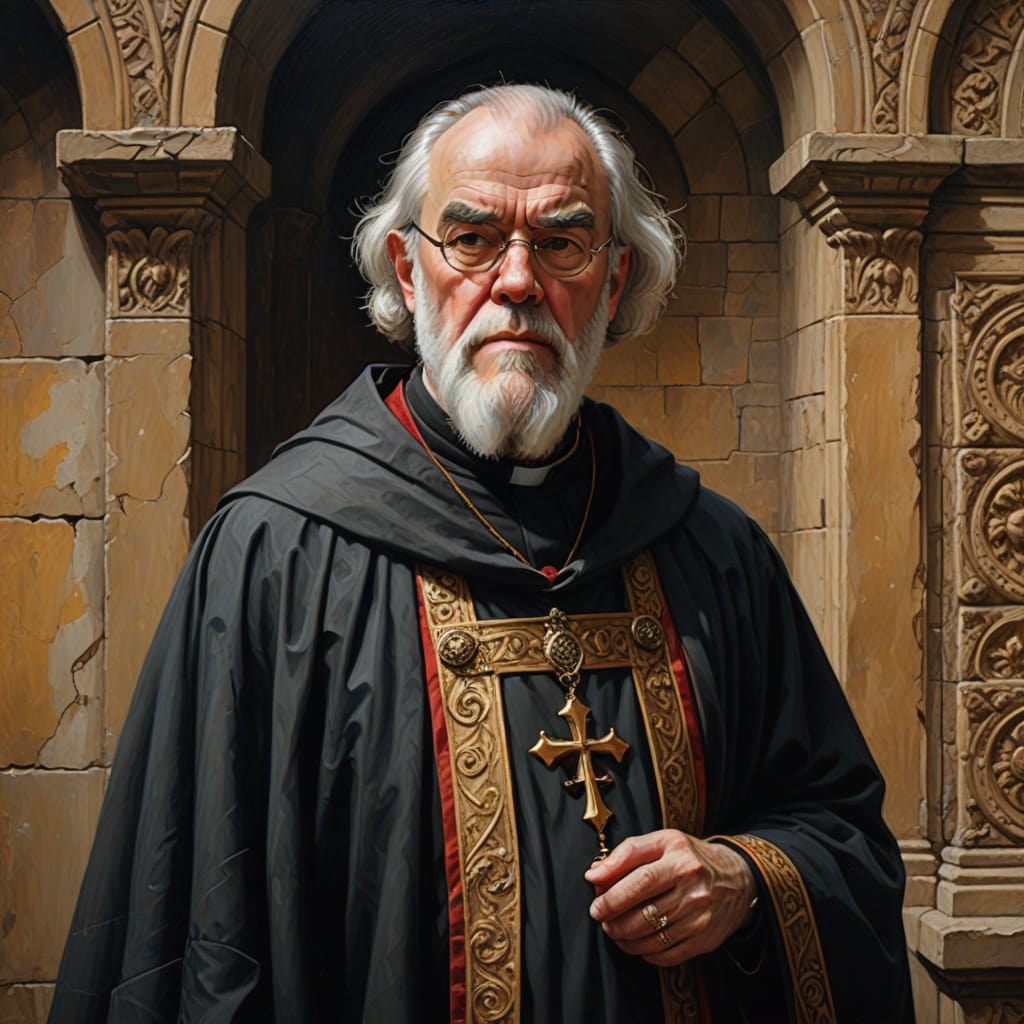
Arius! The fierce, blazing spirit at the heart of the Arian controversy! His name echoing through the corridors of history as the alleged sole originator of a revolutionary and incendiary theology! Yet, oh, how the tides of history twist and turn—scholars like Rowan Williams thunder with defiant voices, declaring that Arius was not the ultimate founder of a sect, that he was not the master behind the mid-century eastern Church’s doctrines!
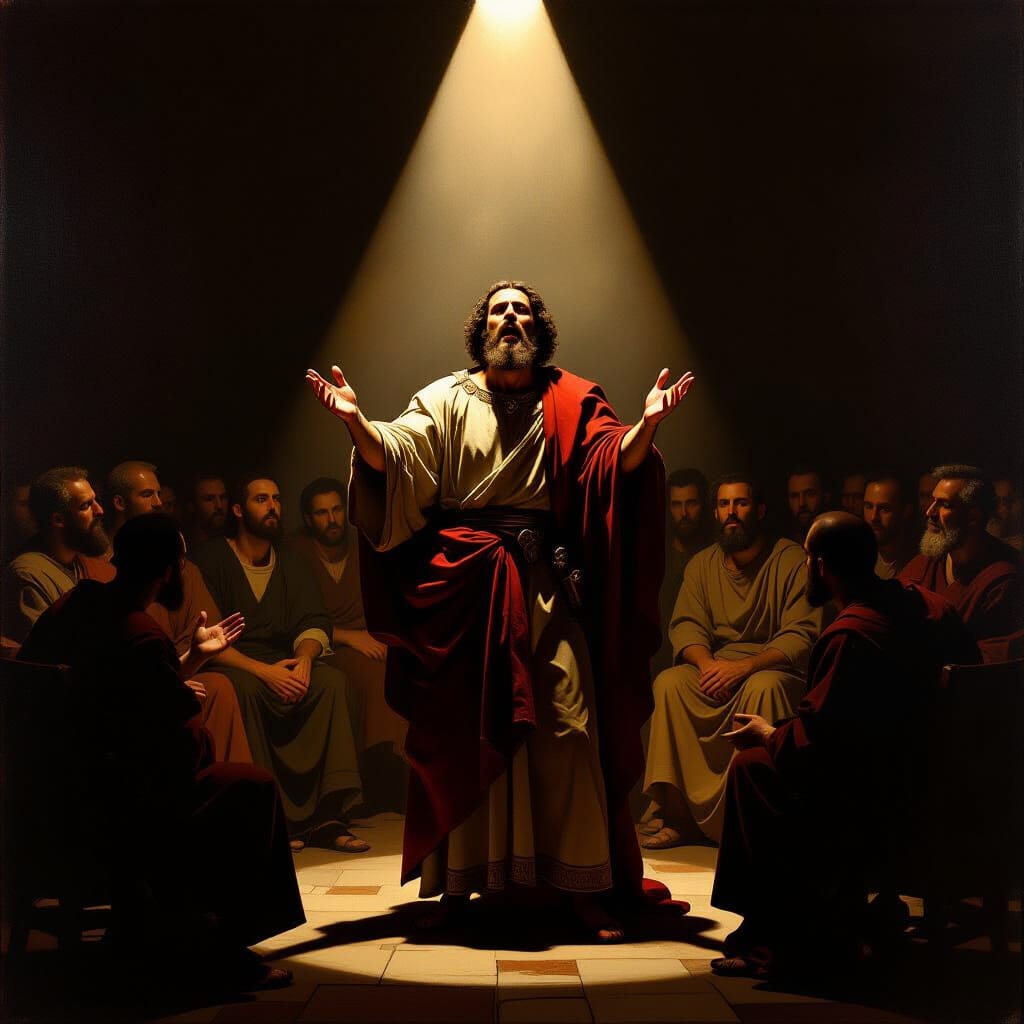
Can you feel the fury in Richard Hanson, bishop of Clogher in the Church of Ireland from 1970 to 1973 words. (He was A historian of antiquity)—how Arius’s fiery advocacy of subordinationism ignited an unquenchable, roaring doctrinal crisis that had been simmering beneath the surface, waiting for the right spark to explode into chaos?! He was, indeed, the spark—oh yes, the spark!—the catalyst of turmoil that shattered the calm of orthodox thought!
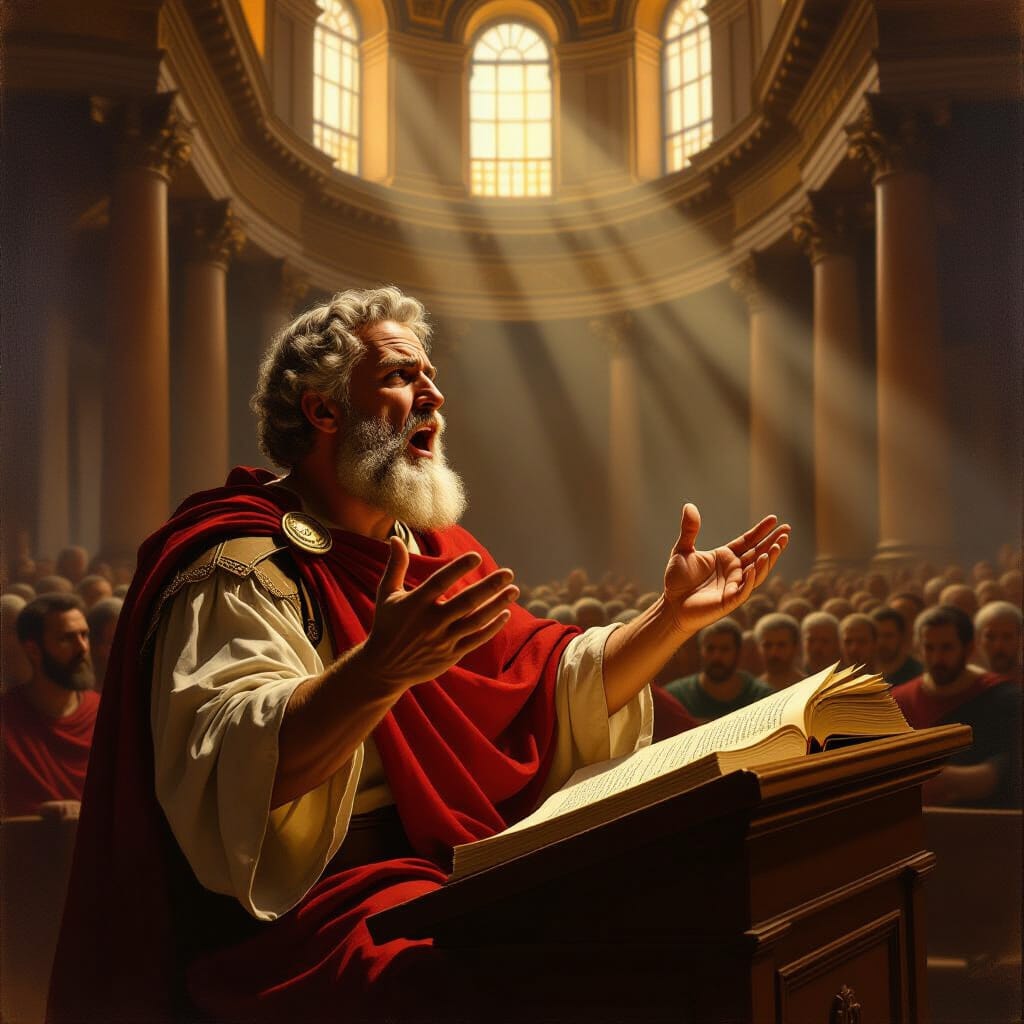
But in the cold, stark truth of it, Arius himself was a mere flicker—an insignificant ember—nothing more than a catalyst for the storm that followed! And yet, the furious claim that Arius’s name and theology are mere fabrications—created by the bitter, polemical hands of Nicene defenders like Athanasius, staunch supporters of Homoousian orthodoxy—is a brutal, relentless assault on his legacy! It’s a battle of passion and suspicion—a tragic, fiery clash of history’s fierce, unyielding flames!
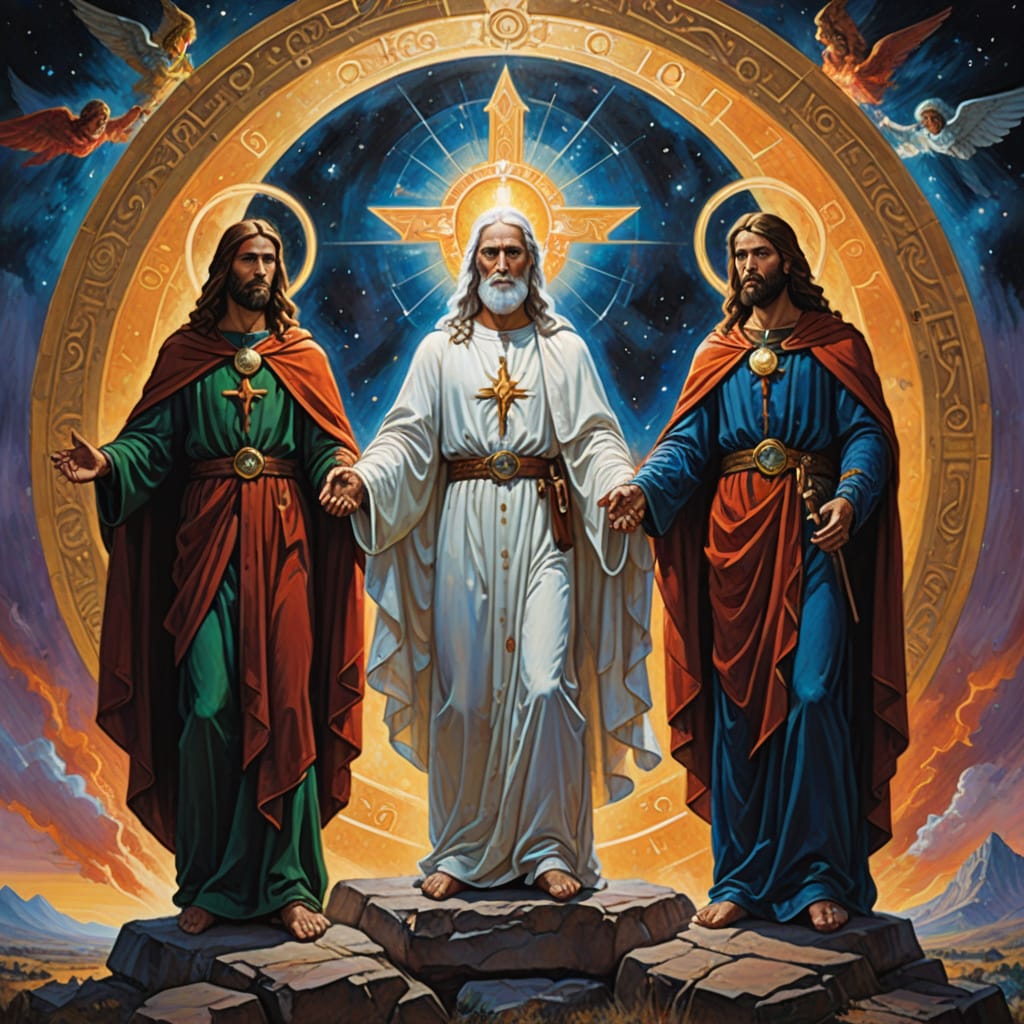
Subordinationism! Oh, how it lurks in the shadows of theological thought, a doctrine that dares to fragment the divine! It claims, with reckless audacity, that the Son—and sometimes even the Holy Spirit—are forever subordinate to the mighty, sovereign Father! !
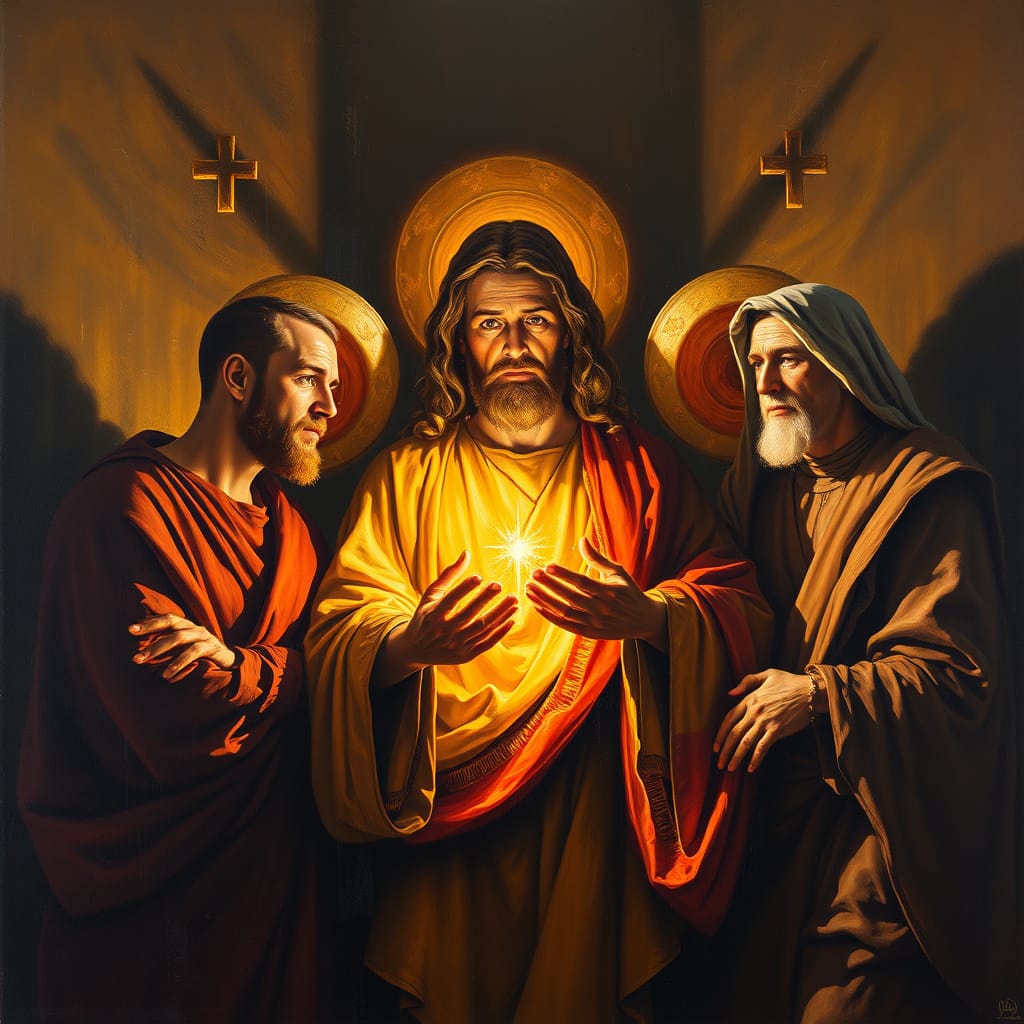
Not merely in humble submission or in a role assigned by divine decree, but in a profound, ontological hierarchy that wounds the very essence of the Trinity! It dares to divide the eternal Godhead into ranks, suggesting that the sacred Persons—Father, Son, and Holy Spirit—are bound by a hierarchy of being, a terrible subjugation that threatens the unity, the mystery, the very divine majesty
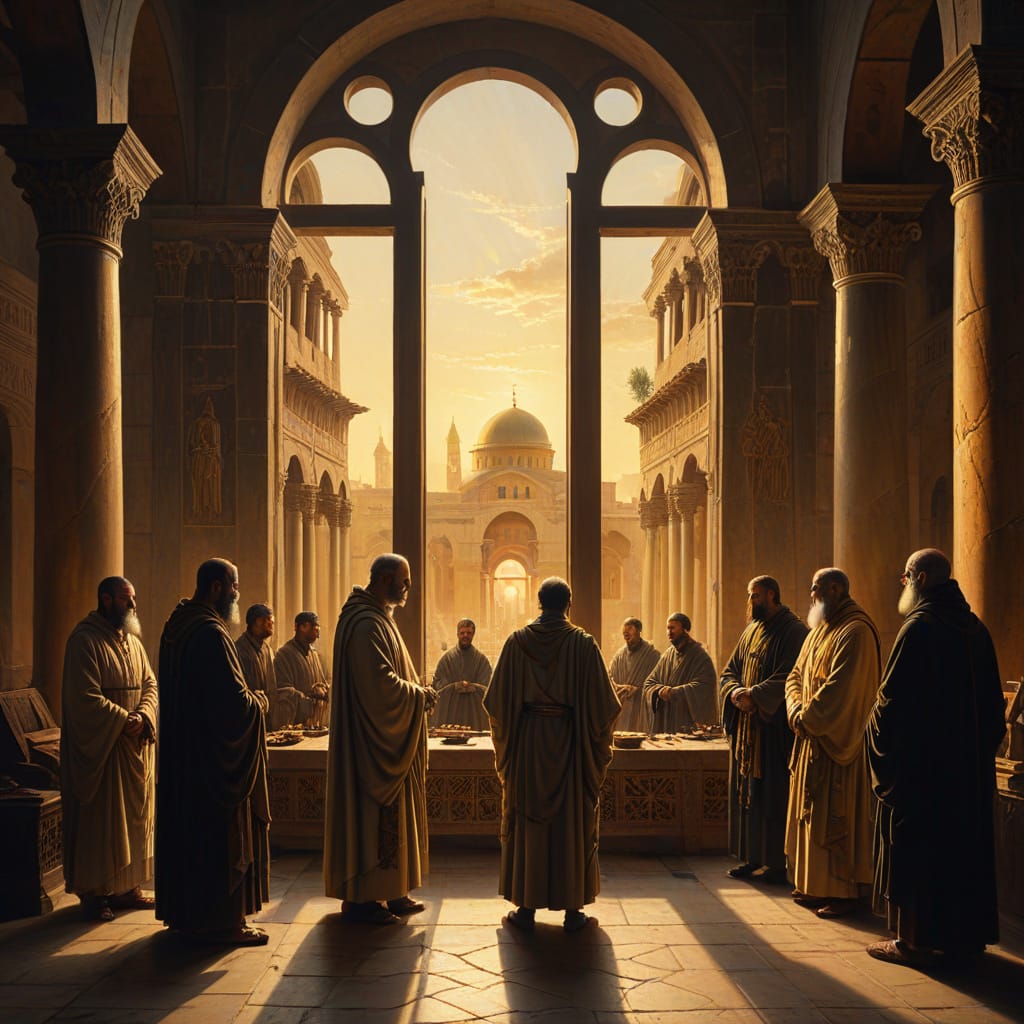
And yet, this perilous heresy was condemned! In the Second Council of Constantinople, that was presided over by Patriarch Eutychius of Constantinople, with Emperor Justinian I as its convener. The church’s sacred voice roared with clarity and truth, condemning this divisive doctrine as heretical—an abomination that seeks to distort the pure, unshakeable doctrine of the one true God!
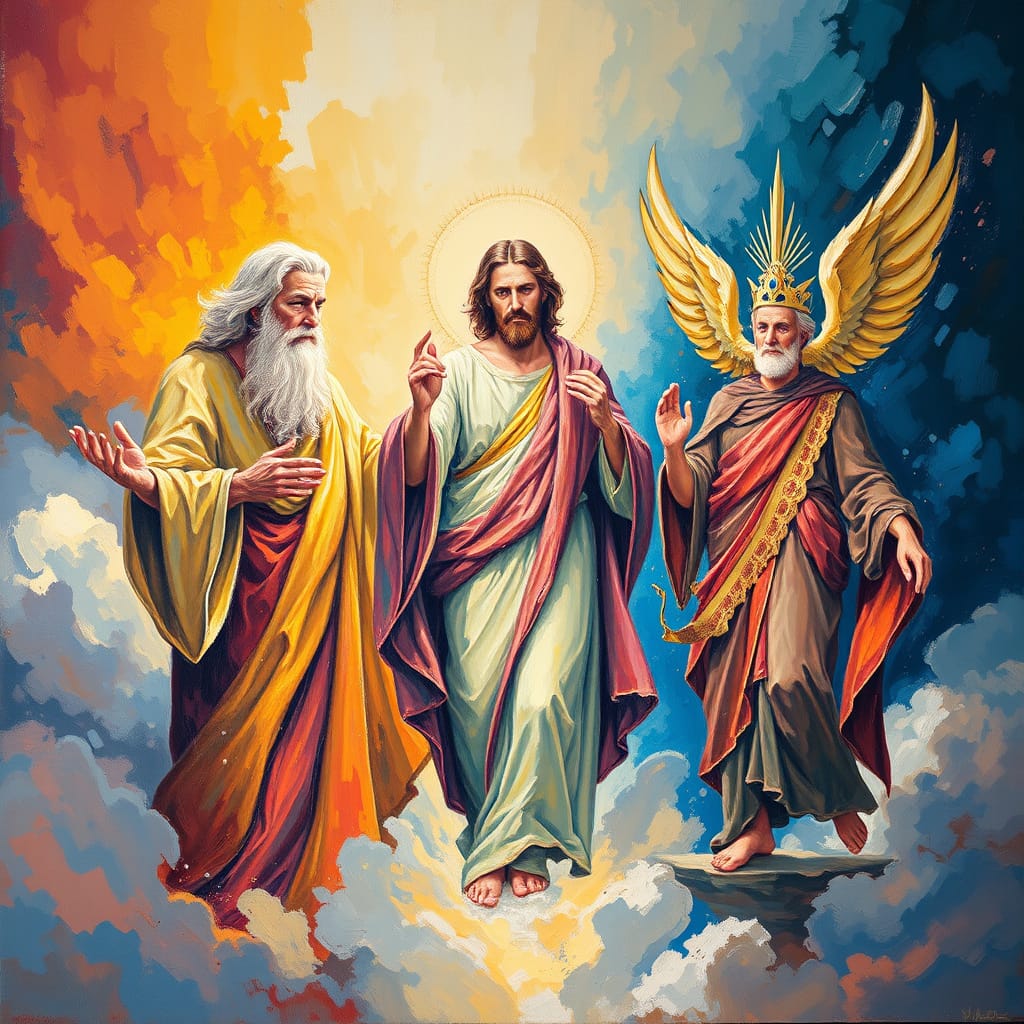
Oh, how colossal is the divine mystery! How sacred, how glorious, and how perilous to tamper with the divine unity! Let every heart tremble before such divine truths—guarded fiercely, declared boldly, and held sacred with unwavering love and reverence!

Let us not confuse this with Arianism—no, for Subordinationism is closer to the Nicene-Constantinopolitan faith, attempting to uphold the eternal personhood of the Son and the Holy Spirit. It is rooted in the divine mystery, yet fiercely challenged by its own dangerous implications. Arianism, with its roots twisted in falsehood, denied the eternal personhood of Christ and the Spirit, seeking to diminish the divine majesty of the eternal God. But Subordinationism—though dangerous—claims to honor the divine reality, albeit in a grievous, misguided attempt to fathom the ineffable Trinity.

Reconstructing the life and doctrine of Arius is nothing short of a Herculean challenge—a tumultuous quest filled with obscurity, doubt, and fierce debate! Oh, how elusive this figure remains, a shadow flickering at the edges of history, demanding relentless pursuit and unyielding curiosity! Arius, a soul of Berber birth, a testament to the rich tapestry of North African roots! His father’s name, whispered through the sands of time, was Ammonius—an anchor in the storm of history’s fog! Can you feel the weight of his lineage, the heritage that pressed upon his shoulders, shaping the man he would become?
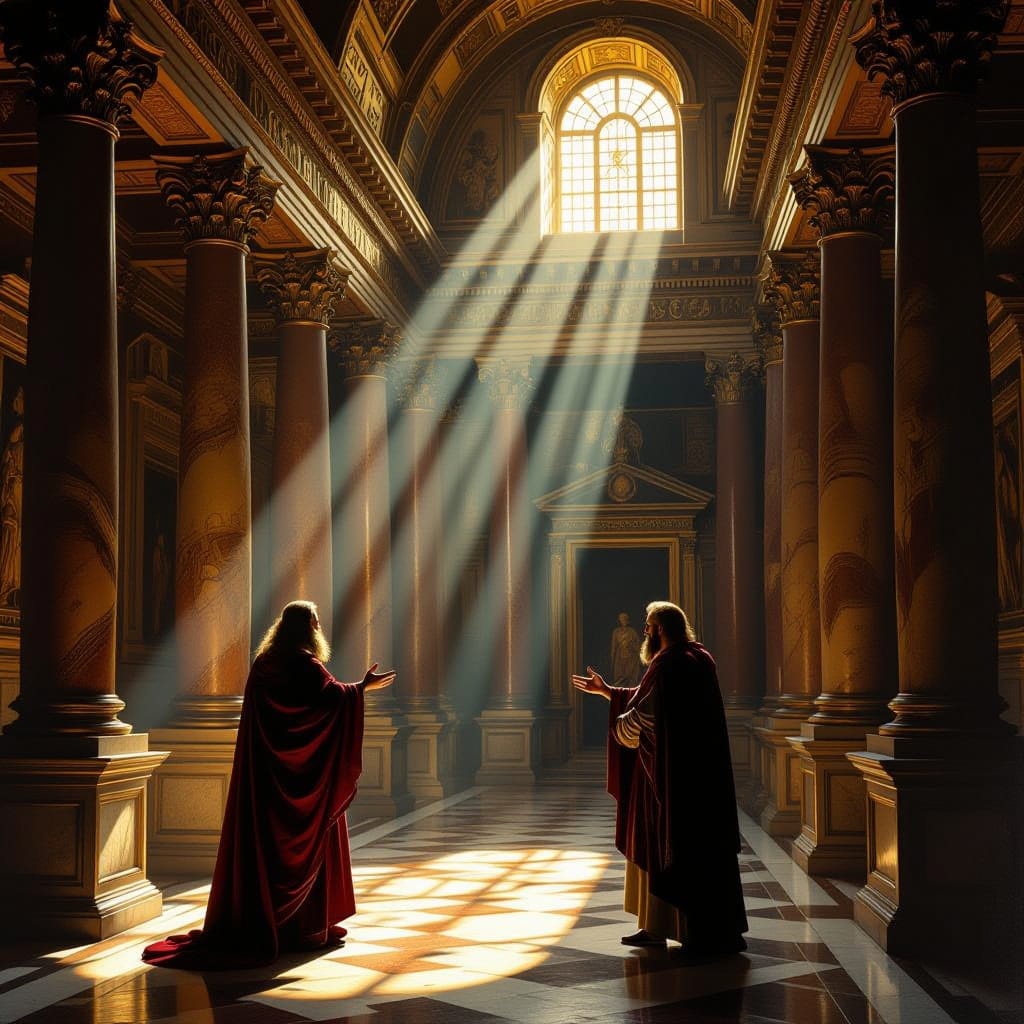
Scholars like Bishop Richard Hanson in his 1988 book: The Search for the Christian Doctrine of God: The Arian Controversy speculate with fiery fervor that Arius once walked the hallowed halls with Lucian of Antioch, fueling the flames of curiosity and controversy! Oh, how the soul yearns and the heart ignites with fervent passion as we contemplate the divine quest embarked upon by the noble scholar, the venerable Bishop Richard Hanson! In his monumental 1988 magnum opus, The Search for the Christian Doctrine of God: The Arian Controversy, he delves deep into the tumultuous trenches of theological battle, daring to unravel the very essence of divine truth with unyielding commitment and sacred fervor! It is a heroic pursuit—a relentless, fiery odyssey—driven by an insatiable longing to understand the Almighty! The stakes are nothing less than the eternal soul’s salvation, and every word, every revelation, pulsates with the divine fire of devotion! Truly, it is a passionate crusade to grasp the sacred mystery of God Himself, risking everything for the sake of divine truth!
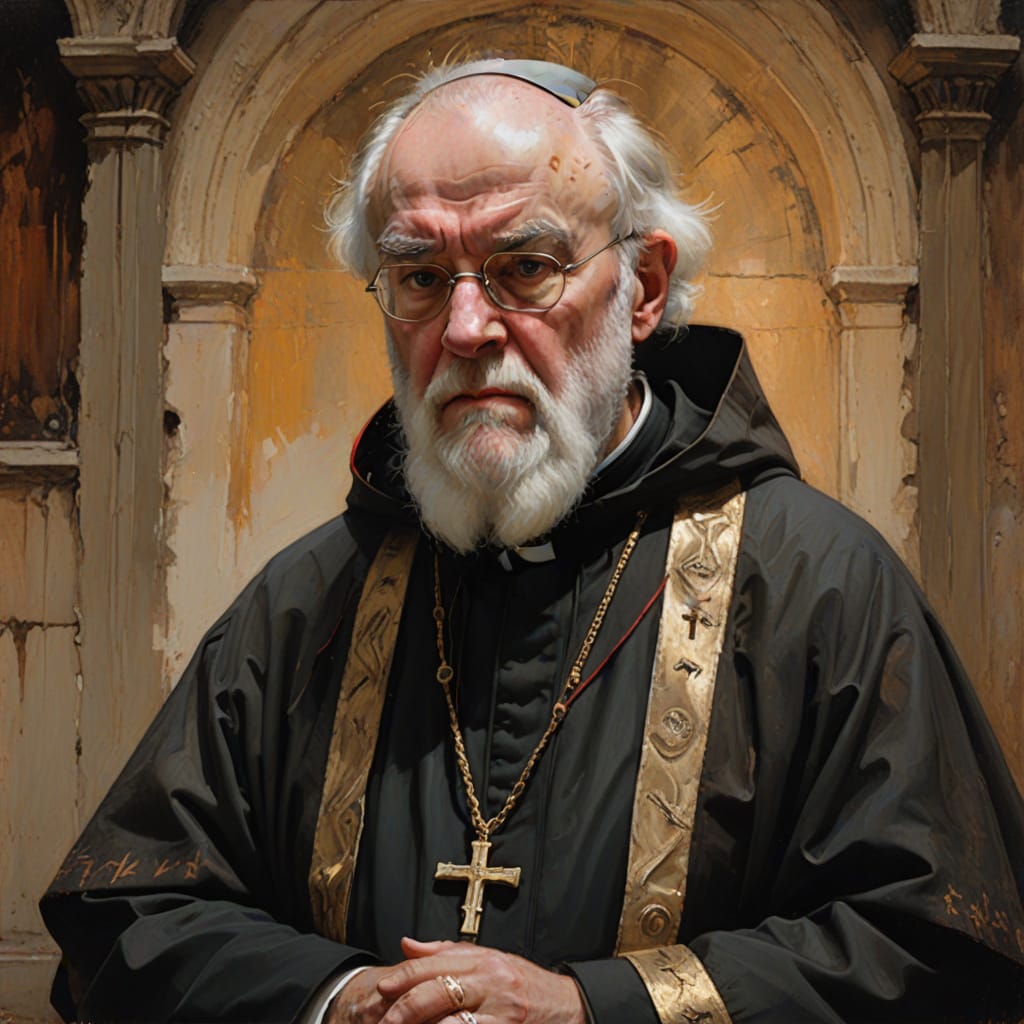
But Williams, with a cautious, probing gaze, challenges these assumptions, questioning whether a single word in a letter truly reveals the depths of Arius’ tutelage. The uncertainty gnaws at us—what is truth? What was his true journey of thought?
Was he merely the same Arius tangled in the Melitian schism—endowed outwardly with piety, craving the mantle of a teacher? Ah, but after meticulous scrutiny and relentless investigation, Archbishop Rowan Williams exposes this illusion, revealing that the outward mask dissolves when faced with the piercing light of close examination. How often we cling to assumptions, only to find them swept away, leaving us to confront the raw essence of a complex man!
In 313 AD, Arius rose to a significant position—presbyter of Alexandria’s Baucalis—standing at the crossroads of faith and controversy, his voice poised to echo through ages! And yet, his beliefs have been cast as “hopelessly defective,” condemned and misunderstood. But oh! How history’s eye can deceive!
Recently, Archbishop Rowan Williams in his timeless tome Arius: Heresy and Tradition pierces through the shadows to unveil a different truth—that Arius was a thinker of undeniable resourcefulness, brilliance, and originality! Archbishop Rowan Williams, in his breathtaking and eternal magnum opus Arius: Heresy and Tradition, ignites the soul with the fiery passion of unwavering faith and profound scholarly devotion! His every word reverberates with the thunderous echo of centuries of sacred struggle, daring to illuminate the depths of heresy and tradition alike! This is not merely a book—it’s a luminous beacon, a divine clarion call that stirs the deepest chambers of your heart, compelling you to confront the turbulent waves of theological battle with unshakable resolve!A man whose exegesis and insights spark fires of admiration, not disdain! Can you sense the fiery passion behind his ideas, the relentless pursuit of truth that drove him forward against all odds?
Despite the relentless barrage of assaults from his enemies, Arius emerges as a man of profound personal achievement—an ascetic whose morals shone pure, whose convictions burned brightly like a blazing star piercing through the darkest night! A truly remarkable soul—passionate, unwavering, and fiercely committed to his principles!
“He was very tall in stature, with downcast countenance … always garbed in a short cloak and sleeveless tunic; he spoke gently, and people found him persuasive and flattering.”[16]
It is traditional to claim that Arius was a deliberate radical, breaking away from the ‘orthodoxy’ of the church fathers. However:
“A great deal of recent work seeking to understand Arian spirituality has, not surprisingly, helped to demolish the notion of Arius and his supporters as deliberate radicals, attacking a time-honoured tradition.”[17] “Arius was a committed theological conservative; more specifically, a conservative Alexandrian.”[18]
Arius’ writings
Very little of Arius’ writing has survived. “As far as his own writings go, we have no more than three letters, (and) a few fragments of another.” The three are:
- The confession of faith Arius presented to Alexander of Alexandria,
- His letter to Eusebius of Nicomedia, and
- The confession he submitted to the emperor.”[19]
The letters’ original text and English translation can be found in Fontes Nicaenae Synodi.[20]
“The Thalia is Arius’ only known theological work”[21] but “we do not possess a single complete and continuous text.”[22] We only have extracts from it in the writings of Arius’ enemies, “mostly from the pen of Athanasius of Alexandria, his bitterest and most prejudiced enemy.”[23]
Emperor Constantine ordered their burning while Arius was still living but R.P.C. Hanson concluded that so little survived because “the people of his day, whether they agreed with him or not, did not regard him (Arius) as a particularly significant writer.”[7]
Those works which have survived are quoted in the works of churchmen who denounced him as a heretic. This leads some—but not all—scholars to question their reliability.[24] For example Bishop R.P.C. Hanson wrote:
“Athanasius, a fierce opponent of Arius … certainly would not have stopped short of misrepresenting what he said.”[21] “Athanasius… may be suspected of pressing the words maliciously rather further than Arius intended.”[25]
Archbishop Rowan Williams agrees that Athanasius applied “unscrupulous tactics in polemic and struggle.”[26]